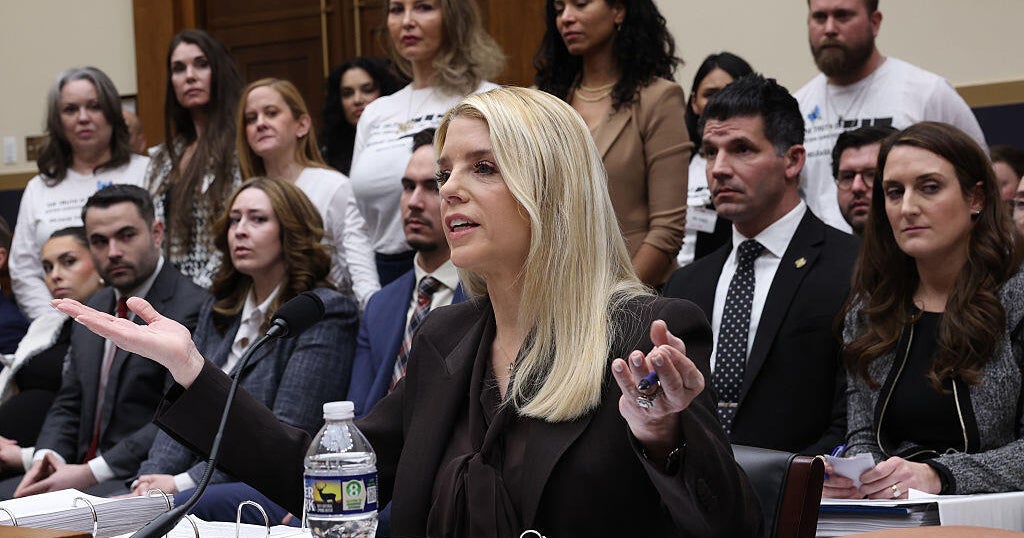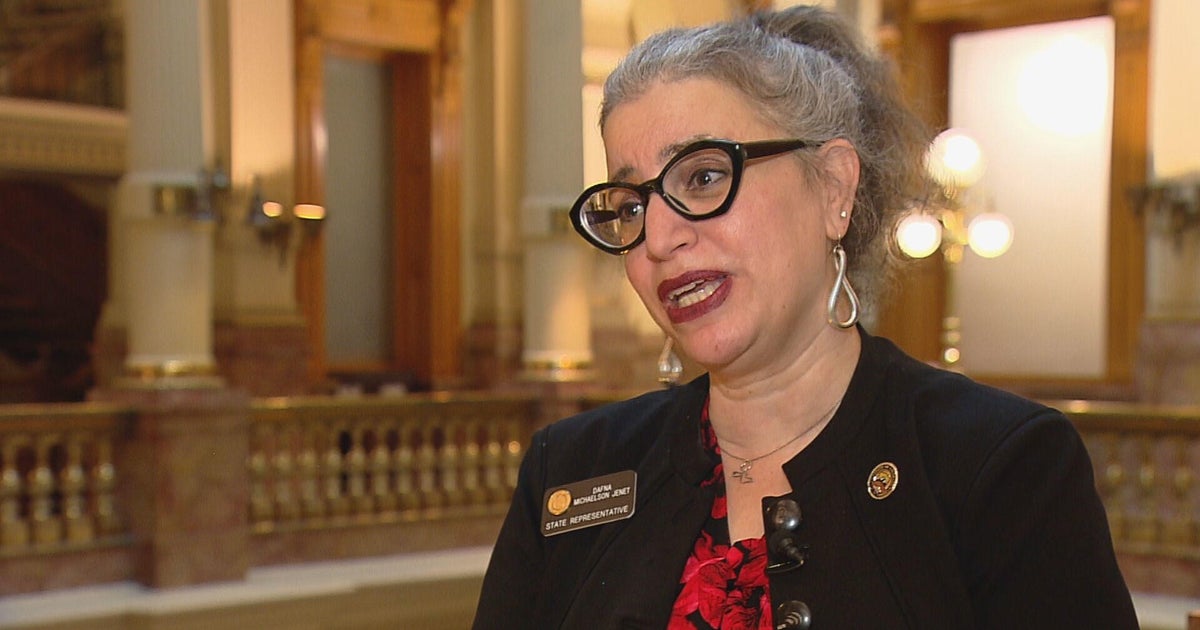Transcript: Sen. James Lankford on "Face the Nation," Dec. 17, 2017
The revelation that senior FBI officials exchanged text messages critical of President Trump before his election has led some Republicans -- and Mr. Trump himself -- to claim that special counsel Robert Mueller's investigation into Russian meddling in the 2016 election has been tainted by bias.
Peter Strzok, a senior FBI agent, was removed from the Mueller probe in August over his texts with FBI lawyer Lisa Page, which included messages calling Mr. Trump an "idiot" and saying Mr. Trump becoming president would be "f*****g terrifying."
Sen. James Lankford, a Republican from Oklahoma and member of the Senate Intelligence Committee, joined "Face the Nation" Sunday to discuss the texts and what they mean for the Mueller investigation and congressional probes into Russian involvement in the campaign. He also weighed in on the last-minute negotiations over the Republican tax bill, which GOP leaders plan to bring to a final vote this week.
What follows is a transcript of the interview with Lankford that airs Sunday, December 17, 2017, on "Face the Nation."
JOHN DICKERSON: We turn now to Oklahoma Republican Senator James Lankford. He joins us from Oklahoma City. Welcome Senator, I want to start with this tax cut bill. You have talked about the debt and deficit throughout your career. All of the independent analysis shows that this tax cut bill will add a trillion or more to the debt. Why then is this a bill you can support?
JAMES LANKFORD: Actually, all the independent analysis doesn't note that. The joint committee on tax does note that, but the tax foundation doesn't. There's a lot of others. We have 130 different sets of economists that are out there and part of the challenge is always looking at which one is right. All of them are putting a forecast out there. All of them have different numbers. We have some as high as a 5% growth. We have some as low as 0.8% growth. All of them show economic growth. The guess is how much economic growth is in the bill itself. The target of any time you do tax reform is to try to reduce taxes on individuals and on businesses so they have more money to spend. They can spend that money, that encourages the economy to grow. We know it will grow. Now the guess is how much.
JOHN DICKERSON: That's right, and the tax foundation is still around 500 billion to the debt and there -- the majority of the independent analysis shows even larger. And that bet you're making, isn't there a big downside risk that you've talked about throughout your career, which is that the negative effects of increased debt kill the growth you are trying to create?
JAMES LANKFORD: Absolutely. The biggest issue that we'd have if we have accelerating debt is to have the issue of continuing investment from the federal government into more and more interest payments. We have to get the economy growing though to actually get on top of this. We have said for years the debt has become so large -- the only way to get on top of this debt and deficit is a growing economy and limiting your spending. We've limited spending over the last several years. It's been very small in its growth for spending, but the economy has also been flat the last decade. We've not had a decade like the last decade since the 1940s. So we've got to get the economy growing again. We're not growing again. We never do get on top of the debt and deficit without that. So you're right, this is something that's designed to be able to energize the economy. It should work. A lot of people that we looked and examined independently say it will work and so the focus for us is let's get this economy growing.
JOHN DICKERSON: Well, if that doesn't work then you'll have compounded problems, and when you talk about spending, based on what you've seen from the way this tax bill is put together, the intellectual rigor, the timing and pacing, do you have confidence that spending reductions can be done in a methodical and sensible way that will actually create good policy or that will create a rush that might create more problems?
JAMES LANKFORD: No, I don't think it's going to create more problems. This tax bill itself has been over a year in the works. In fact, if you go back to the original draft of it, it was about three years ago coming from the camp plan. The House released out their proposal on tax reform in January of this year, the White House early in the summer. This has not been a rushed process. This has literally been 12 months in the making, and multiple hearings over the past year, and then leading back to earlier work even that was done several Congresses ago.
So I know that the theme of this has been, "It's been rushed." I think it's because a lot of people haven't started paying attention till the very end. But the process has been long and methodical. Now, the flip side of that's the spending side because we've got a budget bill to take care of this week as well. I've had great frustration with budget process. The budget process was designed in 1974. It's only worked four times. I've been one of several to be able to say over and over again, "We have got to fix the way we do budget process." We will never get a hold of our spending until we do.
JOHN DICKERSON: Well, and that's the big question that remains from a process. Let me though, we've got to switch to talk about the Intelligence Committee and the work you're doing. You've looked at this question of Russian interference in the election. Are the Russians still interfering, and how are we going to protect the next election?
JAMES LANKFORD: Yeah, there's no doubt the Russians not only engaged in our past election but they're still trying to find ways to be able to do that. We've noted several ways publicly in the last couple of months that they're still engaging in social media, trying to stir up the United States controversies. I compare it to if you've got two kids in a playground that are in a fight, there's always somebody on the edge of the playground screaming, "Fight, fight, fight," trying to bring a bigger crowd to it.
That's what the Russians are really trying to do. They're not starting it. They're just trying to add fuel to the flame any time. The key thing that I think needs to be done right now is a bill that's actually a bipartisan bill I'm working on to be able to finalize hopefully this week to be able to deal with election security, helping states protect their own election security.
The F.B.I. was much too slow and Homeland Security were much too slow in notifying our states the last time that the Russians were trying to probe election systems. We've got to be able to do that faster. We've got to help states have a good, reliable, auditable election system that they can actually do themselves and that the federal government and that all entities from those states can trust those election results.
JOHN DICKERSON: Let me ask you about the texts that were released this week from an investigator on the Mueller team. What's your opinion about those texts, one of which referred to an insurance policy? There's a lot of debate about that text and what exactly was meant by it. But how serious do you think this is in the context of the larger investigation that you know something about?
JAMES LANKFORD: I think it's serious any time you have an investigator within an investigation that has an obvious political bias whichever direction that goes. It's clear this individual within the Mueller team that was also on the Clinton email investigation team on the F.B.I. in their leadership had a strong bias against now-President Trump when he was Candidate Trump and was very clear about that. When that was discovered by the Mueller team, they fired him, appropriately so, and took him off of that team. But that is a big consideration. We expect the Justice Department to be blind and be fair to all sides, not have a clear political bias and express it so strongly.
JOHN DICKERSON: But given that Mueller took him off the investigation, do you think this taints the larger project he's doing since you know the scope of that larger project?
JAMES LANKFORD: Yeah, it's very serious to be able to have someone inside. What they've got to determine is: Was he directing the investigation one way or the other while he was on the investigation? Is that something they can go back, and repair, and look, and see if there's any kind of bias that's in it? Obviously, I don't think it taints the entire process. But it certainly taints that season of it. And it's something you should look at with any political investigation that he was on at the time. Again, we want our F.B.I. agents to be neutral and to be non-political. Not very actively engaged politically.
JOHN DICKERSON: Alright, Senator Lankford, thanks so much for being with us.
JAMES LANKFORD: Thank you.
JOHN DICKERSON: And we'll be back in a moment.



